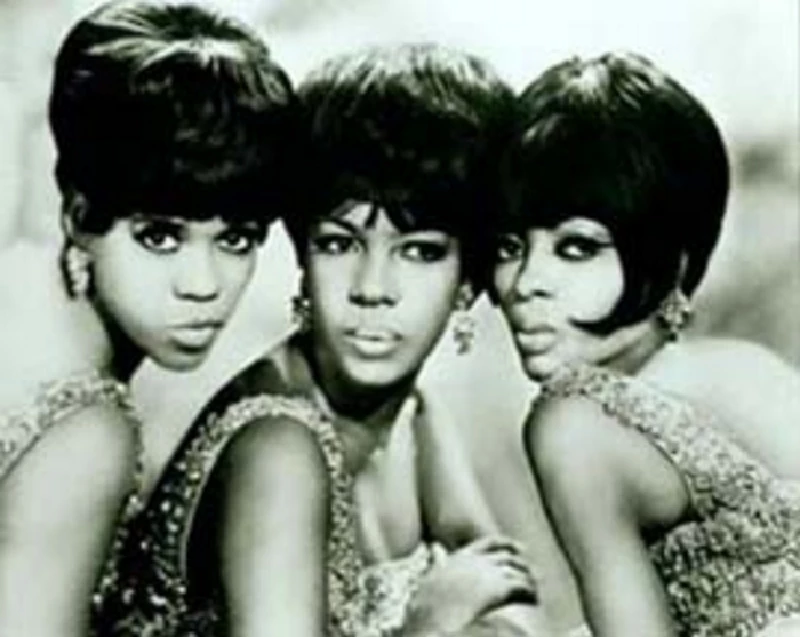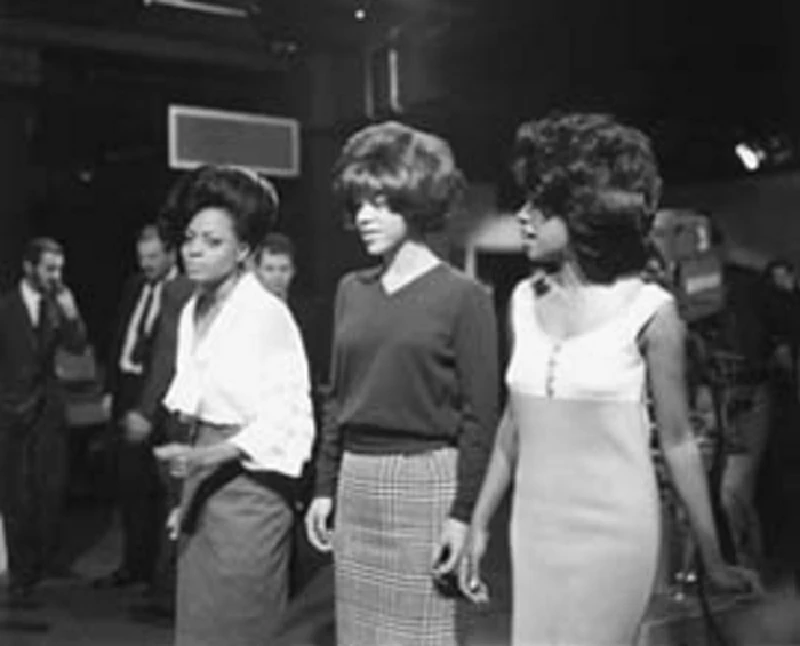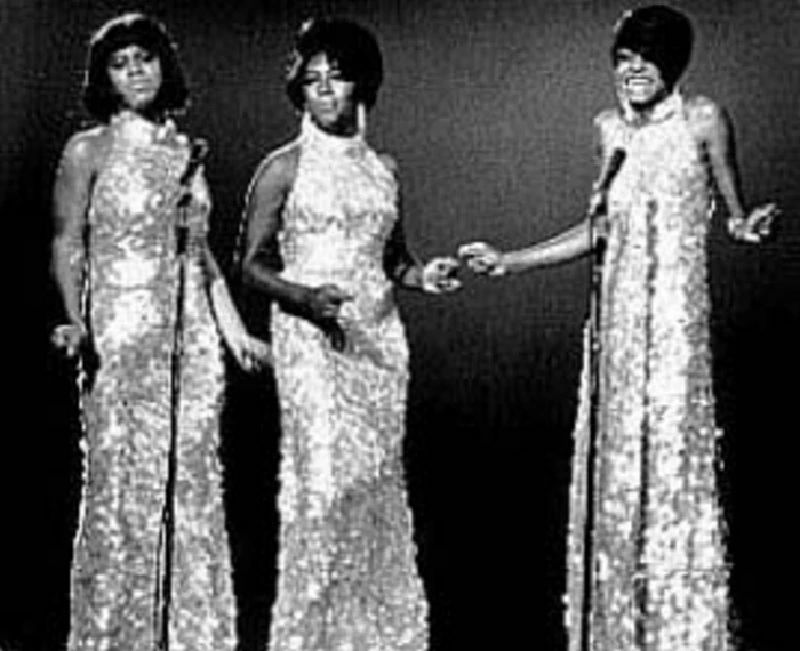Miscellaneous - Profile
by Sarah Rowland
published: 20 / 8 / 2005

intro
The Supremes were one of the biggest girl groups of the 60's, but the beginning and end of their story was laced with tragedy, lost friendships, law suits and death. Sarah Johnson reflects upon their sad history
Motown Records produced some of the best music ever made. It was at the forefront of equality and soul music. All of the Motown artists were talented, youthful and beautiful, but behind blossoming careers there was often a bleaker side to the story. At the height of the Supremes fame they had 12 number one hits to their name and a string of songs charting in the top ten. The beginning and end of their story, however, was laced with tragedy, lost friendships, law suits and death. The Supremes started as a quartet of girls aged between 15 and 16 years old. They called themselves the Primettes taking lead from Florence Ballard who had the strongest voice. Together with Diane Ross, Mary Wilson and Betty Travis she took charge of the group. Four members were, however, never meant to be, but before a trio took shape there was some disruption to the line up. Betty left to be replaced by Barbara Martin. Then Florence’s and Barbara’s parents decided they had to improve their school grades before they could continue with the group. They soon returned and managed to get an audition with Berry Gordy, the owner of Motown. When they first auditioned for Gordy, he did not sign them. Instead he told them to come back once they had finished school. They did, and the Supremes were born. Florence chose the new name which at first didn’t go down too well with Mary and Diane, but Gordy liked it and along with Diane changing her name to the more familiar Diana, (which due to a clerical mistake was already what her birth certificate read) Gordy also gave the girls their signature style-the identical evening dresses that have become iconic to eternal Supremes classics. Their joy at being signed to Motown was short lived because none of their first releases were successful. In 1961 ‘I Want a Guy’ , their first single, flopped and then their second ‘Buttered Popcorn’, which came out a few weeks later, also went nowhere. At this time Florence was still singing lead vocals. They tried putting out a few other singles but none of them were a success. Eventually the girls started looking for other work and Barbara left the group to get married. It wasn’t until 1964 that things started to turn around for the group. Gordy decided to put Diana at the front of the trio. The music the girls were producing was not influenced by gospel and this was unusual for a black group at the time. Gordy thought Florence’s voice was to strong for the pop tunes that he wanted the girls to sing and, although she was not at all happy with the new arrangement, it worked. In August 1964 ‘Where Did Our Love Go’ was the Supremes first number one hit. 'Baby Love’, which followed in October of that year, also went to number one making the Supremes the first all girl group to reach number one in England. This was the beginning of a string of five number ones, a first for an all girl group in America. The Supremes were unstoppable. After a brief break in their chain of number one’s they hit the top spot again with ‘I Hear a Symphony’ in November 1965. Their career continued to grow and the girls shot to stardom, but behind the music tensions were high between Diana and Florence. Florence felt that the group she had started had been taken over by Diana. Understandably she found it difficult being demoted from lead singer. She began to miss shows and after another stretch of number one’s Gordy fired her from the group in 1967. Florence was devastated. She went on to release two songs with ABC records but this was where her career ended. Cindy Birdsong replaced Florence and the group was renamed Diana Ross and the Supremes. This was where things started to go wrong for the group. They had a couple of number one hits but never again reached the success of the past few years. The girls were no longer friendly with each other and Diana recorded her vocals separately to the others. In 1970 Diana left to start her solo career and was replaced by Jean Terrell. Mary was now the only original member of the group but the Supremes had become a trade mark name and even with this new line up they managed moderate success with ‘Stoned Love’ reaching number one. Things became rocky however when the line up became even more unstable, Cindy left and replacement after replacement was brought in until in 1976 Mary, the last original member, left. They had one last single before the group was abandoned. 1976 was also the year of Florence’s death. Since leaving the group her career had crumbled and she had turned her attention to bringing up her three children. Still bitter at the way in which she had been dismissed from the group she entered in to several lawsuits against Motown which consumed her final years. She was rushed to hospital after becoming suddenly ill on February 21st 1976 and died of a heart attack the next day aged only 32 years. Forty years on since the majority of their biggest hits were released the Supremes are still loved. I distinctly remember singing along to ‘You Can’t Hurry Love’ when I was a little girl and listening to my mam’s records. The bass and tambourine beat kicks in and you can’t help but jump up and dance, and as the verse builds up to the skip along chorus you can’t help but sing. Any song that still has that effect after being played for forty years deserves the classic status of the Supremes.
Picture Gallery:-


most viewed articles
current edition
John McKay - InterviewRobert Forster - Interview
Cathode Ray - Interview
Spear Of Destiny - Interview
Fiona Hutchings - Interview
When Rivers Meet - Waterfront, Norwich, 29/5/2025
Carl Ewens - David Bowie 1964 to 1982 On Track: Every Album, Every Song
Chris Wade - Interview
Brian Wilson - Ten Songs That Made Me Love...
Shrag - Huw Stephens Session 08.12.10 and Marc Riley Session 21.03.12
previous editions
Heavenly - P.U.N.K. Girl EPBoomtown Rats - Ten Songs That Made Me Love....
Allan Clarke - Interview
Oasis - Oasis, Earl's Court, London, 1995
Manic Street Preachers - (Gig of a Lifetime) Millennium Stadium, Cardiff, December 1999
Barrie Barlow - Interview
Pixies - Ten Songs That Made Me Love...
Beautiful South - Ten Songs That Made Me Love...
Trudie Myerscough-Harris - Interview
Dwina Gibb - Interview
most viewed reviews
current edition
Peter Doolan - I Am a Tree Rooted to the Spot and a Snake Moves Around Me,in a CircleGarbage - Let All That We Imagine Be The Light
Vinny Peculiar - Things Too Long Left Unsaid
Vultures - Liz Kershaw Session 16.06.88
John McKay - Sixes and #Sevens
Little Simz - Lotus
HAIM - I Quit
Morcheeba - Escape The Chaos
Pulp - More
Lapsley - I'm a Hurricane, I'm a Woman In Love
Pennyblackmusic Regular Contributors
Adrian Janes
Amanda J. Window
Andrew Twambley
Anthony Dhanendran
Benjamin Howarth
Cila Warncke
Daniel Cressey
Darren Aston
Dastardly
Dave Goodwin
Denzil Watson
Dominic B. Simpson
Eoghan Lyng
Fiona Hutchings
Harry Sherriff
Helen Tipping
Jamie Rowland
John Clarkson
Julie Cruickshank
Kimberly Bright
Lisa Torem
Maarten Schiethart